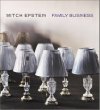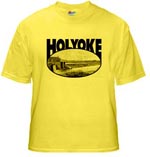by Laurel | April 15th, 2013
9 May 1920
George W. King is Acquitted
Holyoke Boys’ Club Superintendent Found Not Guilty of Assault on Girls
George W. King, charged technically with assault on several girls in connection with the use by them o the gymnasium and baths at the Holyoke Boys’ Club was today discharged on all of the complaints by Judge Robert C. Parker of Westfield, who sat on the case. Judge Parker took occasion to compliment the manner in which the case had been handled and to comment the police department for bringing the case to trial. Summary of the case by Judge Parker was unusually long and complex and included a review of the four essentials of assault, as interpreted by the supreme court of the state. No criminal or evil intent was shown and upon that element of assault Judge Parker based his decision.
“The indiscretions were so colossal as almost to suggest an abnormal mind,: commented the court. They were the acts of a simple-minded man. Judge Parker declared it to be one of the most unique cases he had ever heard or read and that covered a period of 23 years.
“It has been a serious case in the community,” he said “and it had been a serious case in the court.” He congratulated counsel on the careful way in which he case had been prepared and tried, and their presentation of the case he declared to be very helpful in arriving at a decision. “Nobody is being persecuted,” he said, “The police department has done its duty. The moral sense of the community had been disturbed. A high sense of duty compelled the police department to bring the case into court. They could not have done otherwise.
“The conduct of the case has been worthy of the case,” he continued, “and of the issue. The witnesses have not been injured by their appearing in court here. They tried to be honest. The defendant attempted to tell the story in the right way. The facts are very evident. The institution is a boys’ club and at the request of the girls they were permitted to come to the club. Mr. King looked after the bathing himself. It became more or less of a habit. The indiscretion was so colossal as to almost propose an abnormal mind. The impropriety about doing the things that were done was so great that it creates a point of view hard to explain. Mr. King worked into doing this gradually. His judgement was so extremely poor in this case as to be almost phenomenal. He had no excuse for doing it. Apparently, no harm resulted, but the possibilities were appalling. I have got to consider this matter with reference to the decisions of the Massachusetts Supreme Court. I cannot work up any sympathy for Mr. King.”
Four Elements of Assault
“The four elements to consider in assault are the imposition of hands whether it was without justification, whether unlawful in its procedure and whether with criminal intent.
“There is no question about the imposition of hands; there was no justification for his acts as no man had a right to even go down into the room and turn on the water; and it seems that his act was bad in itself. As much as I abhor what he had done I cannot find evidence that will permit me to think that he did it with evil intent. The activities were of a simple minded man.”
Arguments of former Mayor N. P. Avery for the defendant were to show that King showed poor judgement but without any criminal intent. he enlarged upon the good service that the accused has rendered, the work that had been done by both Mr. and Mrs. King at the club, and the excellent character that witnesses had testified to.
Attorney T. D. O’Brien, for the prosecution, called attention to the work of the police department in attempting to avoid publicity,m and how an indignation meeting of King’s friends practically threw down the gauntlet to the department. “Their white cloak of purity was cheesecloth and their crown they placed on his head was of brass, not gold,” commented Attorney O’Brien.
What action the officials o the Boys’ Club will take relative to the continuance of King in April is not announced. From statements made by several member it would appear that the majority of those in control favor his retention.
Adapted from The Springfield Republican.
List of Articles on the “Holyoke’s 1920 Scandal” Series:
Holyoke’s 1920 Scandal, Part I — King’s Conduct is Basis of Inquiry
Holyoke’s 1920 Scandal, Part II — King is Arraigned Under Six Counts
Holyoke’s 1920 Scandal, Part III — Girls Testify Against King
Holyoke’s 1920 Scandal, Part IV — George W. King is Acquitted
George W. King Discharged on All Complaints
George W. King, Head of Holyoke Boys’ Club, Dead








